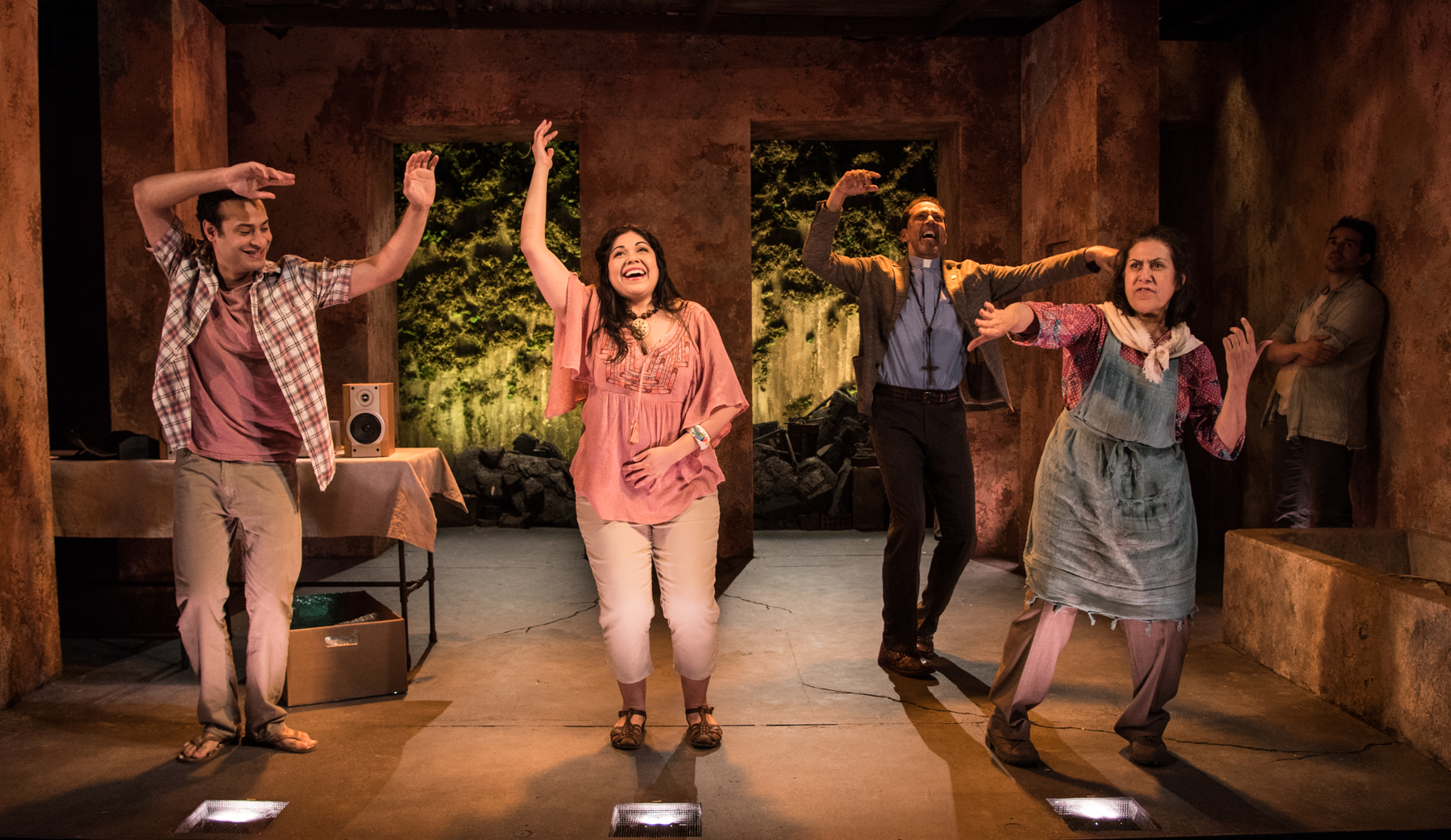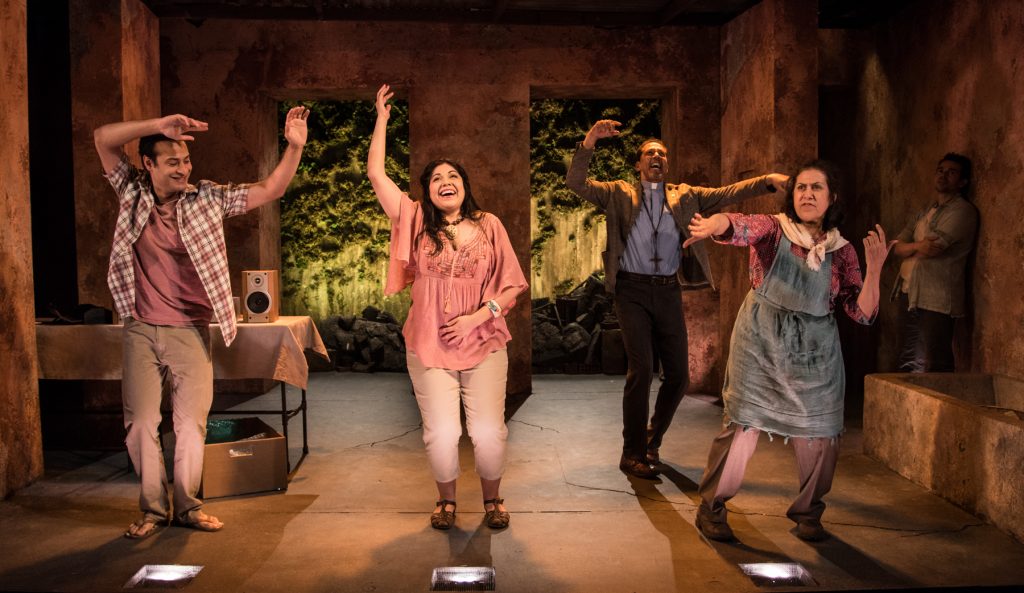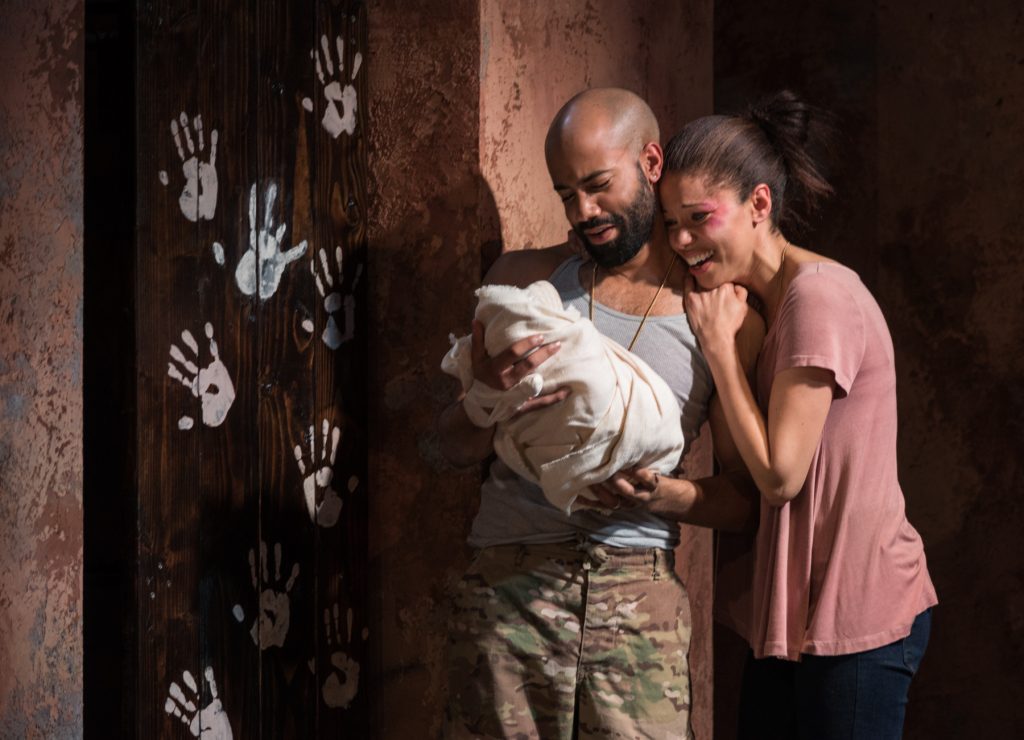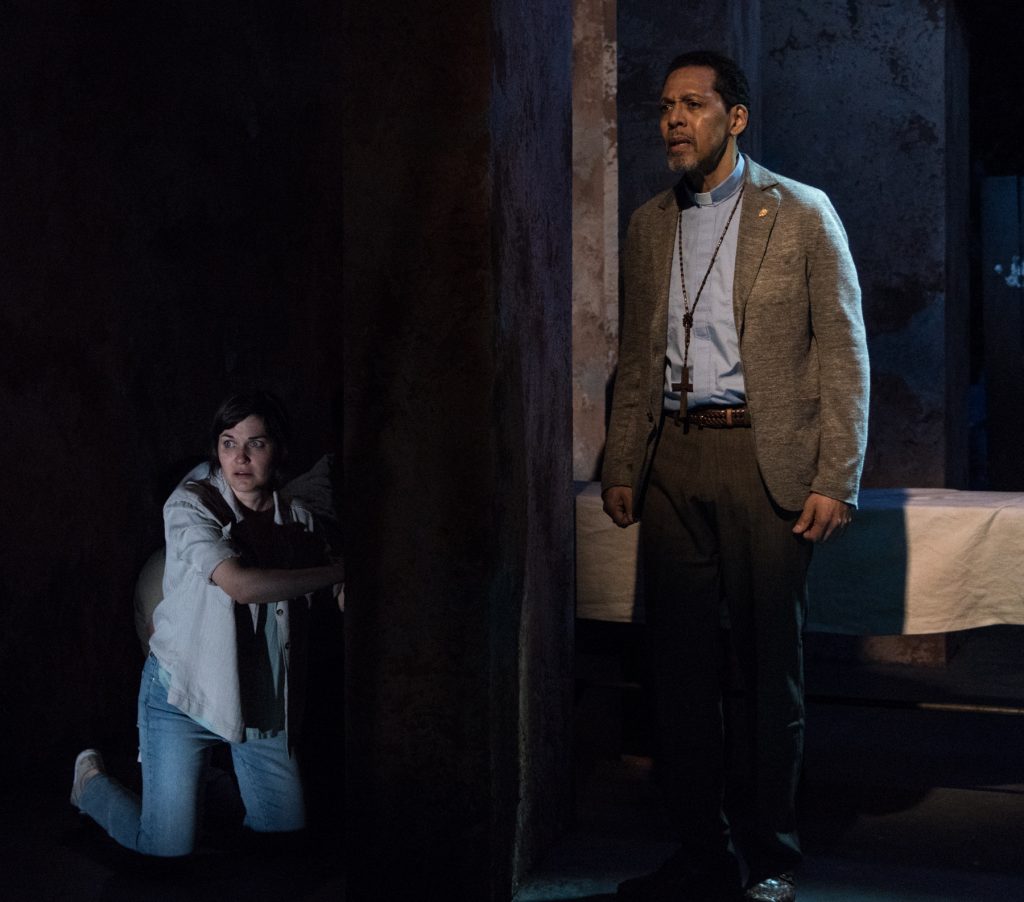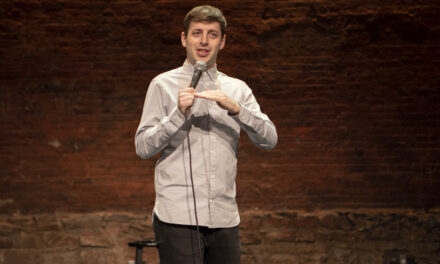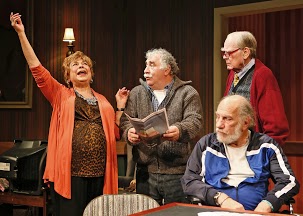By Beatrice Williams-Rude
Seven Spots on the Sun is a searing work by Martin Zimmerman that deals with the horrors of war and their aftermath, posing the question: justice or peace?
It’s a weighty subject and this presentation harkens back to the Greeks both in style– the chorus and poetic language–and theme .
This is an allegory and is rich in symbolism, starting with its title. Sun spots are a phenomenon astronomers have been tracking since the mid-1700s. They have 11-year cycles and bring disruption.
Zimmerman has set his play in an unnamed country and the goals of the combatants are never elucidated. Luis joined the army to get the money to buy Monica, his wife, a washing machine—which she doesn’t necessarily want. She only wants him. They enjoy a passionate relationship which the war erodes as Monica comes to realize that Luis has committed atrocities. He details how the soldiers were taught to kill children by bashing their heads against walls in order not to waste bullets. A riff on the oft invoked excuse “I was only following orders,” now “I was only doing what everybody else was doing.”
He has taken Belén, the beloved wife of the town’s doctor, Moisés, whose mercy in defying the military in order to treat a wounded 15-year-old who was left to die as a lesson to the villagers, leads to her murder as the drunken and cowardly priest, Eugenio, denies her sanctuary.
The play opens with the sounds of shelling and then of rejoicing that the civil conflict is over. The operative word is “amnesty,” amnesia, forgetting. But how can the victims forget? And who are the victims? The innocent (the children), the merciful (in this case Belén and Moisés). But wait: are not those who lost their humanity in the war not also victims? Peace or justice? Can there be one without the other?
The action builds slowly and flashbacks tell us where the characters are and from where they’ve come. In the eighteen months since Belén was taken, Moisés, in despair, has become a recluse, and the town without a doctor. Now a plague has struck, but all the victims are children. The priest bangs on the doctor’s door pleading that he examine the children. The priest, whose behavior has been deplorable, is at first refused, but finally convinces the doctor to look at the patients, who have boils all over their bodies. As Moisés touches the pustules,they disappear. This happens with child after child and word spreads widely including to the village where Luis and Monica live. Their infant daughter has contracted this unnamed disease and Monica wants to take her to the doctor. Luis resists. Monica goes alone and brings the baby to the doctor, but having determined who she is, refuses to touch the infant. Monica implores him, but he answers that he doesn’t need her pleas, but rather those of her husband.
Luis continues to refuse but Monica is insistent. The exchange between Monica and the doctor, then Monica and Luis, then the three of them are raw, riveting and gut-wrenching. After Luis has reluctantly begged the doctor, the doctor still refuses. Luis protests, and using the same words to Luis that Luis used to him when taking Belén,, the doctor snarls “I lied.”
This brings up the question of when justice becomes vengeance, engulfing generation after generation.
Monica convinces the doctor to touch her baby by promising that his wife, Belén, would never be forgotten, that she, Monica, would whisper into the child’s ear nightly what Luis had done. Moisés then notes that the child would come to hate Luis, her father. Monica accepts this. Moisés then points out that the child might also turn on her, Monica. Monica knows, but all that’s important to her is that her daughter be alive.
But are not the seeds of vengeance being sown in the next generation?
There are scalding performances by Sean Carvajal as Luis, Flor De Liz Perez as Monica, and Rey Lucas as Moisés. Flora Diaz is lovely as Belén and Peter Jay Fernandez is convincing as Eugenio, the priest. The entire cast is commendable. The excellent direction is by Weyni Mengesha. The performers enunciate clearly and project. The effective set is by Arnulfo Maldonado; sound designer is Tei Blow, lighting by Amith Chandrashaker.
And yes, this reviewer wept.
A special note: the staff at the theater is extraordinarily gracious, cooperative and helpful.
Photos: Russ Rowland
The official opening of Seven Spots on the Sun is May 10. It runs 85 minutes without an intermission.
Presented by Rattlestick Playwrights Theater and the Sol Project, it’s playing at the Rattlestick Theater, 224 Waverly Place where it will run through June 4. www.rattlestick.org


